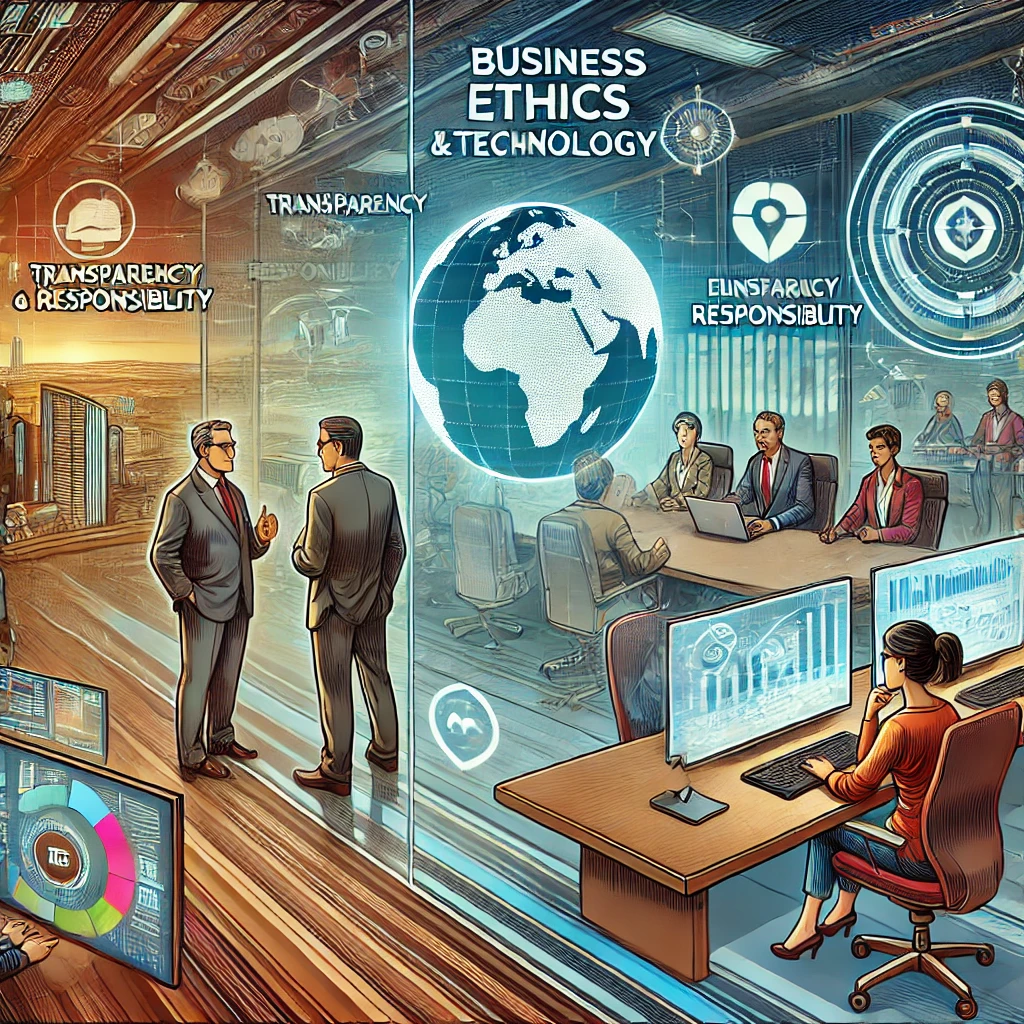Article 01 - the Ethical Frontier in the Digital Enterprise
Navigating the Ethical Frontier in the Digital Enterprise

In today’s fast-moving world, technology is changing how businesses work. From using big data and AI to managing cybersecurity, these digital tools are transforming industries. But with these changes come new ethical issues that companies need to address to keep trust and do the right thing.
- Keeping Data Private
Data is now very valuable, like a new kind of oil that fuels business decisions. But collecting and using personal data can raise ethical concerns. Companies need to handle data carefully and responsibly. Laws like the GDPR set rules for data protection, but ethical behavior goes beyond just following these rules.
Businesses should be clear about how they collect and use data, get permission from users, and keep data safe. They should only collect the data they need and use it in ways that people expect and agree with.
- Avoiding Bias in AI
Artificial Intelligence (AI) can make decisions and improve efficiency, but it can also reinforce biases if not managed correctly. For example, biased AI could unfairly affect hiring or credit scores based on race, gender, or income.
To prevent this, companies should regularly check their AI systems for bias, have diverse teams working on AI, and be open about how AI decisions are made. Fairness and transparency are key to making sure AI is used responsibly.
- Protecting Against Cyber Threats
As businesses rely more on technology, they become targets for cyberattacks. Protecting data from these attacks is not just a technical issue but an ethical one. Companies must do more than just have good security measures; they need to create a culture of security awareness.
This means training employees, regularly checking for security weaknesses, and having clear plans for handling breaches. Being honest about any security issues and taking responsibility is important for keeping trust.
- Impact on Jobs
Digital changes often lead to job loss and new skill requirements. Companies should handle these changes ethically by helping employees learn new skills and supporting those who lose their jobs due to automation. Fair treatment and growth opportunities are essential for a positive work environment.
Companies also need to be careful about how they monitor employees. They should respect privacy and avoid overly intrusive practices.
- Fairness and Sustainability
Businesses should also think about the environment and the digital divide—the gap between those who have access to technology and those who don’t. They should support efforts to make technology accessible to everyone and use digital advancements to benefit society as a whole.
Conclusion
As technology continues to evolve, businesses need to focus on doing the right thing. This means being honest, transparent, and responsible in how they use technology. By addressing these ethical issues, companies can build trust, improve their reputation, and make a positive impact in the digital world.
